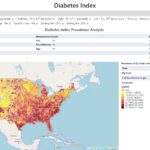

Reducing Racial and Ethnic Disparities in Access to Care: Has the Affordable Care Act Made a Difference?
Abstract
- Issue: Prior to the Affordable Care Act (ACA), blacks and Hispanics were more likely than whites to face barriers in access to health care.
- Goal: Assess the effect of the ACA’s major coverage expansions on disparities in access to care among adults.
- Methods: Analysis of nationally representative data from the American Community Survey and the Behavioral Risk Factor Surveillance System.
- Findings and Conclusions: Between 2013 and 2015, disparities with whites narrowed for blacks and Hispanics on three key access indicators: the percentage of uninsured working-age adults, the percentage who skipped care because of costs, and the percentage who lacked a usual care provider. Disparities were narrower, and the average rate on each of the three indicators for whites, blacks, and Hispanics was lower in both 2013 and 2015 in states that expanded Medicaid under the ACA than in states that did not expand. Among Hispanics, disparities tended to narrow more between 2013 and 2015 in expansion states than nonexpansion states. The ACA’s coverage expansions were associated with increased access to care and reduced racial and ethnic disparities in access to care, with generally greater improvements in Medicaid expansion states.
Background
Historically, in the United States, there has been a wide gulf between whites and members of minority groups in terms of health insurance coverage and access. Proponents of the Affordable Care Act (ACA) hoped that law’s major insurance coverage expansions and reforms would begin to bridge those gaps.
Evidence suggests that uninsured rates have declined among blacks and Hispanics under the ACA,1 but have these coverage gains reduced disparities between whites and ethnic and racial minorities? This brief seeks to answer that question and to examine if disparities in access to coverage and care are different in states that expanded Medicaid and states that did not.
We compared national averages between 2013 and 2015 for white, black, and Hispanic adults on three key measures of health care access to determine the effect of the ACA’s major coverage expansions on disparities:
- the share of uninsured working-age adults ages 19 to 64
- the share of adults age 18 and older who went without care because of costs in the past year
- the share of adults age 18 and older without a usual source of care. READ FULL ARTICLE










